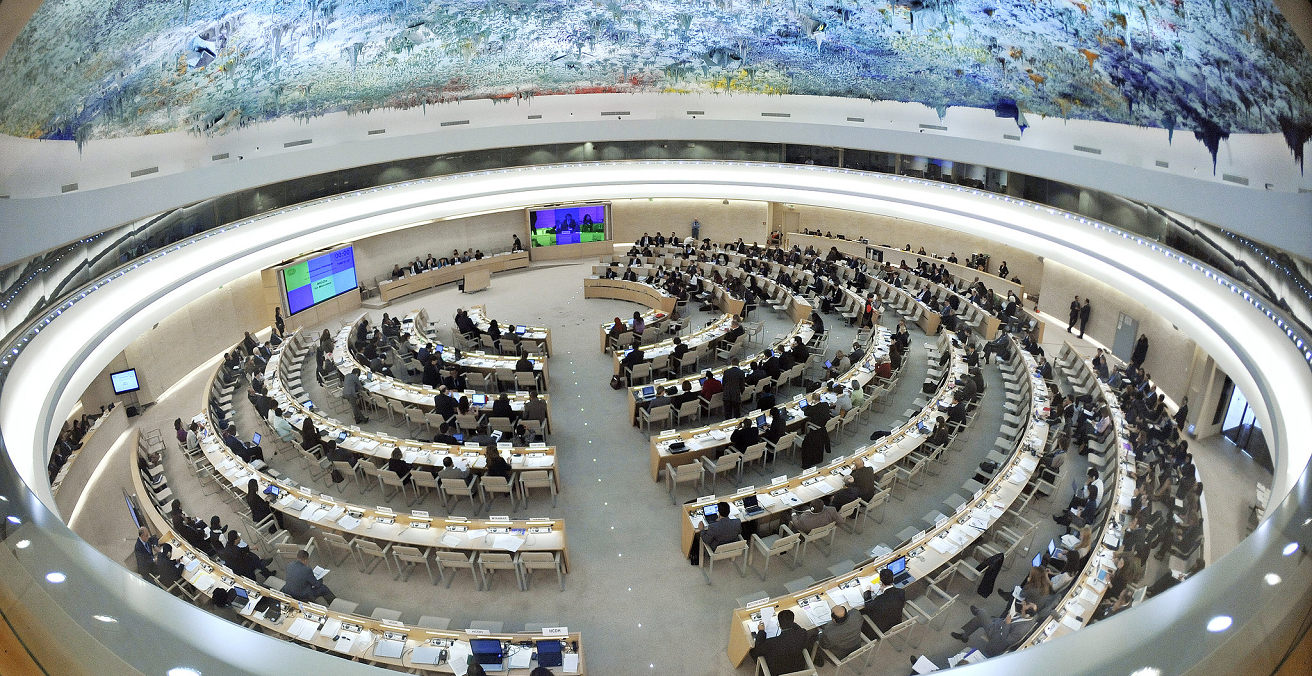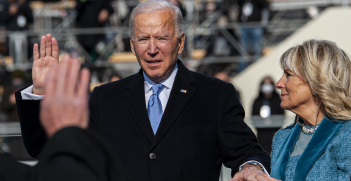Why the Biden Administration Should Re-Join the UN Human Rights Council

Since the US withdrew from the UN Human Rights Council in 2018, authoritarian regimes have cemented their grip on power. Following President Joe Biden’s election, the US has an opportunity to push back.
In June 2018, the Trump Administration announced its decision to withdraw the United States from the UN Human Rights Council, the key international body for the promotion and protection of human rights. Since then, China, Russia, and other authoritarian states have consolidated their grip on power within the Council, capitalising on a lack of US leadership to entrench a decade-long campaign to undermine global human rights protections.
In July 2020, for example, a group of 53 authoritarian and third-world countries, including Belarus, Cambodia, Cuba, Egypt, Iran, Pakistan, Saudi Arabia, and Venezuela issued a joint-statement praising China’s repressive national security law for Hong Kong. No less dispiriting was the October 2020 election to the council of an array of rights-abusing countries, including China, Russia, and Cuba.
With the election of President Joe Biden in November 2020, the US and its Western allies have a unique opportunity to stymie the pattern of authoritarian control that currently pervades in the council. While campaigning for office in December 2019, President Biden pledged to recommit the US to the council, if elected. With that in mind, here are four reasons why the Biden administration should re-join the UN Human Rights Council as soon as possible.
Restore US leadership
Under the Trump administration’s isolationist “America First” foreign policy, the US abandoned its role as a global leader, withdrawing from international institutions, disparaging multilateralism, and lambasting its allies on multiple occasions. By contrast, President Biden views the US as an international leader, and has argued that it is essential for America to work together with its allies to tackle global problems. In a lengthy article published in the March-April 2020 edition of Foreign Affairs, President Biden set out his foreign policy vision to restore the US “at the head of the table” and in “a position to work with its allies and partners to mobilize collective action on global threats.” With President Biden at the helm, the US can start to restore its international credibility and prestige, and re-joining the council offers an important step on the road to reviving America’s international leadership.
Counter the influence of China
Another reason the US should re-join the council is to counter the influence of China, which has displayed a growing antipathy to human rights under the rule of President Xi Jinping. Since 2013, China has worked to subvert the international human rights system, flooding its agencies with loyal functionaries and members of government-organised non-governmental organisations (NGOs), such as the China Society for Human Rights Studies, that seek to advance China’s agenda. In April 2020, for example, Jiang Duan, a Chinese diplomat and member of the Chinese Mission to the UN in Geneva was appointed to an influential panel charged with selecting the Council’s Special Procedures mandate holders. These independent experts investigate human rights violations around the world, and undertake fact-finding visits to countries where grave rights abuses have been reported.
With the US absent, Western democracies have struggled to curb China’s influence in the council. When in July 2019, for instance, the European Union and several Western countries issued a statement condemning China’s repression of Uyghur Muslims in Xinjiang, the Organisation of Islamic Cooperation, a powerful bloc of Islamic states, delivered a joint-declaration cheering China’s human rights record. With Beijing steadily ramping up its influence over the UN’s human rights institutions, it is essential that the US re-join the council to shore up its Western democratic allies, and provide a bulwark against the ambitions of the Chinese party-state.
Support human rights activists
Human rights activists play a key role in the council by reporting on human rights violations, advocating for victims of rights abuses, delivering written and verbal statements, and organising important side events. For the past few years, however, China, Russia, and other authoritarian regimes have sought to obstruct human rights activists from participating in the council in an effort to blunt scrutiny of their rights violations on the global stage. In particular, China has used its position on an influential UN NGO committee to restrict human rights campaigners from participating in UN forums, sponsoring side events, or even gaining access to UN premises.
No less alarming has been an aggressive campaign by Chinese diplomats to intimidate and harass human rights activists during UN forums, in a clear attempt to prevent them from speaking out on China’s rights abuses. When human rights activists have been able to access the council, China has attempted to suppress their accounts of rights violations by repeatedly interrupting their formal statements.
With China and Russia becoming ever more influential in the council, these activities are unlikely to end. It is therefore critical that the Biden administration re-joins the Council to support human rights campaigners, whose personal bravery merits the recommitment of the world’s most powerful nation.
Make human rights meaningful again
During the Trump Administration’s term in office (2016-20), human rights experienced a period of decline as concerns about rights violations frequently took a back seat to issues deemed more important to America’s national interests. With the US revealing a willingness to embrace foreign dictators, human rights are in danger of becoming hollowed out and devoid of all meaning. Worse still, the US has cynically deployed the language of human rights in ways that undermine their universality, such as former US Secretary of State Mike Pompeo’s misguided Commission on Unalienable Rights initiative.
Fortunately, the Biden administration can start to reverse this trend by placing human rights at the forefront of its foreign policy agenda. By re-joining the council, the US can send a powerful signal to the world that human rights still matter, and that countries that abuse human rights will be held to account.
As an international body, the UN Human Rights Council is far from perfect. It has been plagued by problems of politicisation and regionalism and accused of having an unfair bias against Israel. Yet for millions of ordinary people around the world whose human rights are routinely violated by their own governments, the council also represents an essential global forum for justice and accountability. In the struggle between democracy and authoritarianism that is likely to shape the future of international politics, the council will become a key battleground. The US cannot afford to ignore it.
Geoffrey Roberts has an honours degree in political science from La Trobe University. He has also written for Passblue and China Change.
This article is published under a Creative Commons License and may be republished with attribution.





